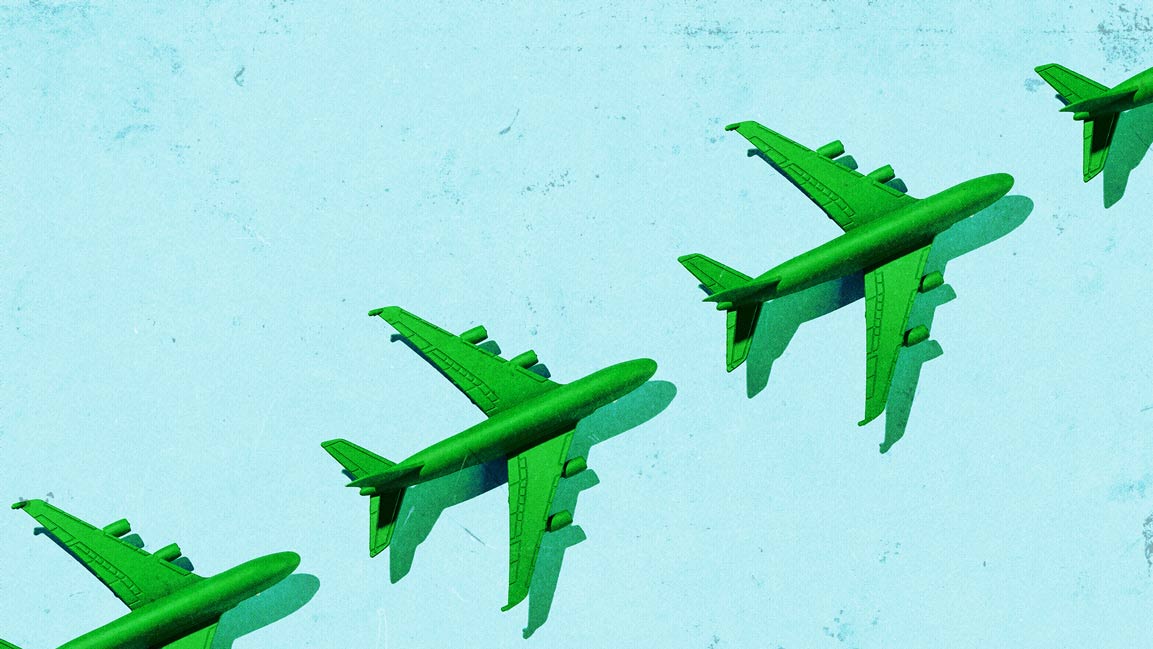- | 9:00 am
These are the top trends defining travel and tourism in the Middle East
From sustainable tourism to business travel that balances work life, here are a few trends that today's travelers seek out.

Think of your favorite travel experience and why it stood out. It might be the incredible farm-to-table food, scenic nature, wilderness adventures, or excellent resort facilities. Travel is an emotional experience, and the latest trends showcase that travelers are looking for experiences without cost being a big determinant.
As globally connected consumers who have grown up during an era of heightened environmental awareness, Gen Z’s, an increasingly important group for brands, approach to sustainable travel seems more hands-on. They include nature-based activities, tours with local guides, and volunteering. They are eager to participate in sustainable initiatives and engage with the local community while traveling.
SUSTAINABLE EXPERIENCES
Not surprisingly, one significant travel trend in the Middle East is the rise of eco-tourism. “As travelers become more environmentally conscious, destinations in the Middle East are increasingly focusing on sustainable practices, including eco-friendly accommodations, conservation initiatives, and cultural preservation efforts. This trend not only attracts a new wave of tourists who prioritize sustainability but also encourages the development of infrastructure and policies that support long-term environmental health and cultural heritage in the region,” said Michael Koth – General Manager of Emirates Palace Mandarin Oriental, Abu Dhabi and Area VP of Operations.
Koth cited an example of vegan-friendly rooms created to cater to the demand of eco-conscious guests. He says the addition was based on understanding the trends.
“When we did our research, we found very little pertaining to vegan accommodations and lifestyles beyond nutrition, which sparked a curiosity to learn more and create a regional first. We looked at suppliers for everything imaginable, including bedding, textiles, upholstery, fabric, duvets, pillows, cushions, sofas, flooring, and more. We also examined how these materials are best maintained and discovered that they need special handling and plant-based cleaning products.”
“Every aspect of this offering is vegan-friendly and thus sustainable, offering a luxury getaway without sacrificing values,” he adds.
Lately, tourists and business travelers have also wanted to travel “sustainably” and reduce their carbon footprints. About 80% of travelers believe that sustainable travel practices are important. Sustainable air fuels (SAFs) represent a shift towards more sustainable travel. The airline industry, a significant source of carbon emissions, faces a unique challenge in adopting sustainable practices compared to other transportation sectors.
Despite being slow to adopt climate solutions due to stringent safety and regulatory standards, the industry has recently made progress with testing and adopting SAFs. According to Dr. Grzegorz Ombach, Head of Disruptive Research and Technology at Airbus, the industry is now undergoing a revolution to achieve sustainability after focusing on flight capability, safety, and accessibility.
“The future of aerospace would be catalyzed by hydrogen. With SAF, we know how difficult it is. Our aircraft use a mix of SAF; however, there is insufficient fuel production globally. Hydrogen is the next level of difficulty,” Dr Ombach added.
Meanwhile, some travel companies are taking the lead on being carbon-neutral by removing short-haul flights from their itineraries and replacing them with alternatives such as bus travel.
EMOTIONAL AND VALUABLE EXPERIENCES
The global travel landscape has transformed in the last few years. The pandemic catalyzed a reevaluation of travel priorities, particularly highlighting the importance of family connections, which experts say is set to continue well into 2024.
“The pandemic also profoundly reshaped multigenerational travel, with families prioritizing reunions after prolonged separations. This period has heightened the emotional value of these trips, as families seek meaningful time together to compensate for lost moments and reward themselves,” says Koth.
Interestingly, when it comes to demand for affordable travel in the region, according to YouGov data, 55% of travelers across markets, including the UAE, said a “customized travel experience” was more important to them than the cost.
A BALANCE OF WORK AND LIFE
While eco-friendly travel options, flying carbon offset, and staying in green hotels are sure to define tourism, another trend that Stan Klyuy, Chief Commercial Officer at Tumodo, noticed is the level of technology employed in business travel has become even higher. “The ability to quickly book services and organize the entire process online is a must-have for business travelers in 2024. Therefore, the main focus has shifted to the development of technology and training of AI so that the selection of services through algorithms becomes more accurate, and travelers save time on the booking process.”
Another interesting trend is the ambition to balance work and life. “Quite unusual for previous years, wellness for business travelers has caught on. Business travelers have become more conscious about their health,” Klyuy says.
“Even on business trips, it is important for people to have a jogging route near the hotel, spa services, clinics, and beauty salons. People no longer want to sacrifice health for a career — they are trying to combine the two sides of life.”
While striking a balance is important to travelers, it would be equally important for hospitality partners, F&B players, and the aviation industry to balance value, immersive experiences, and affordability. The travel and tourism industry is at the front seat of the climate disaster, and it’s all about taking meaningful measures to make it more sustainable. The conscious traveler is willing to pay more for redesigned travel, if done in the right way. But is the industry taking note?








































